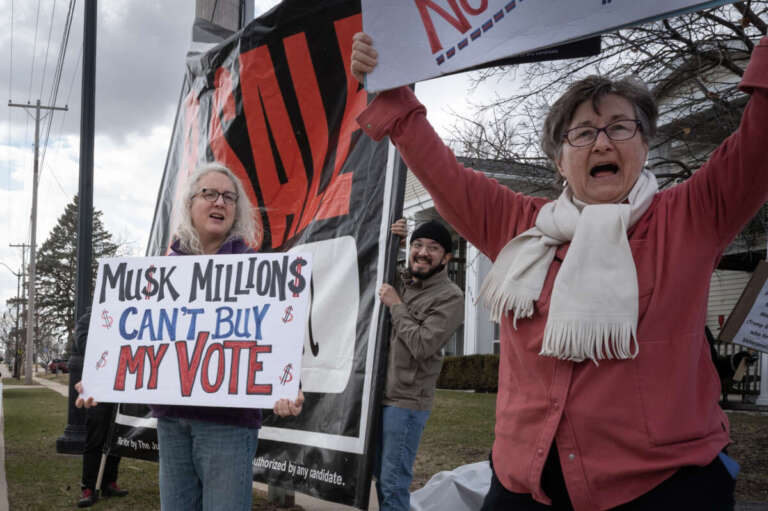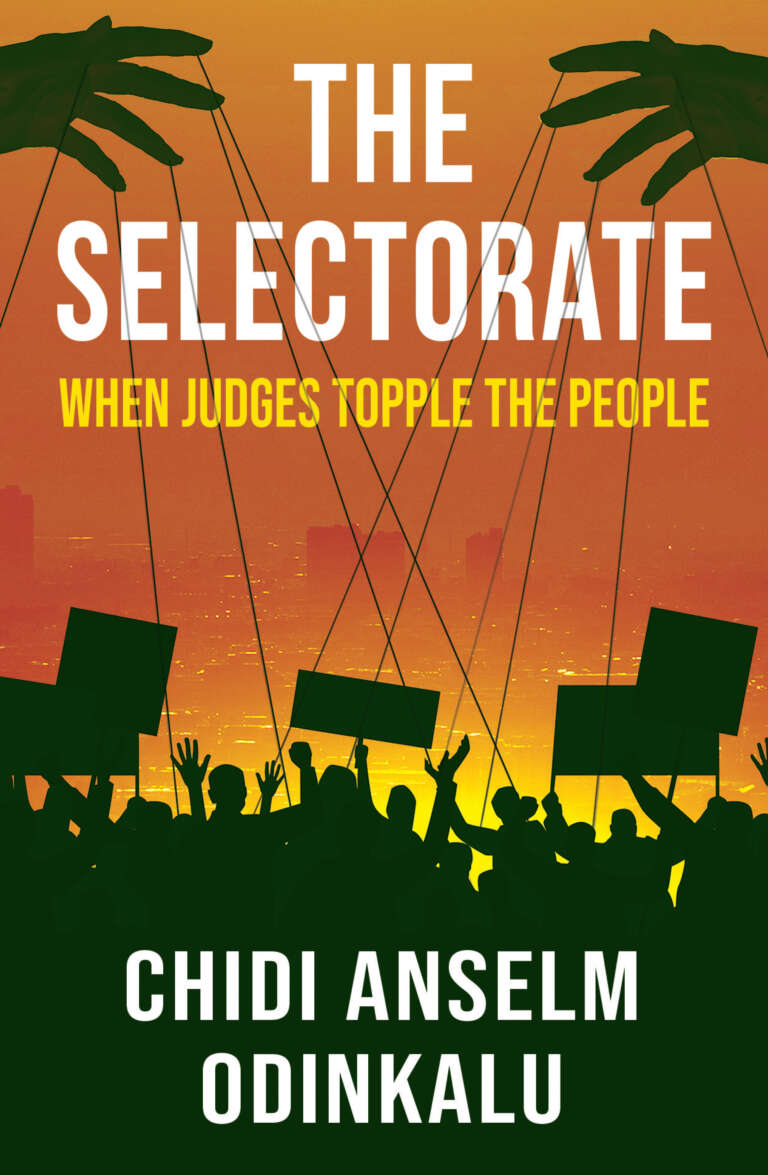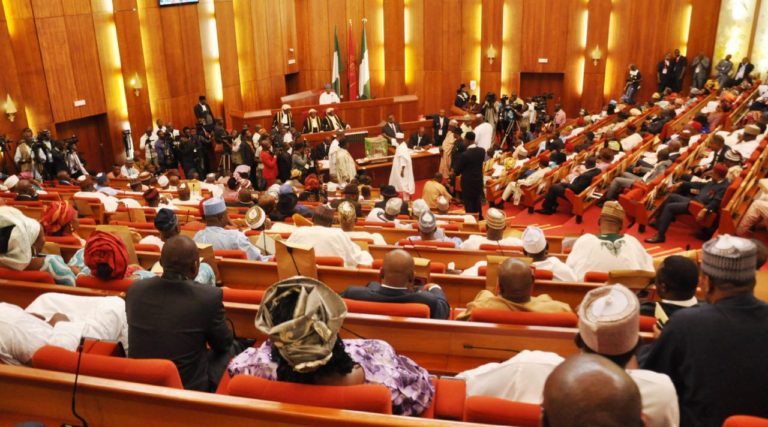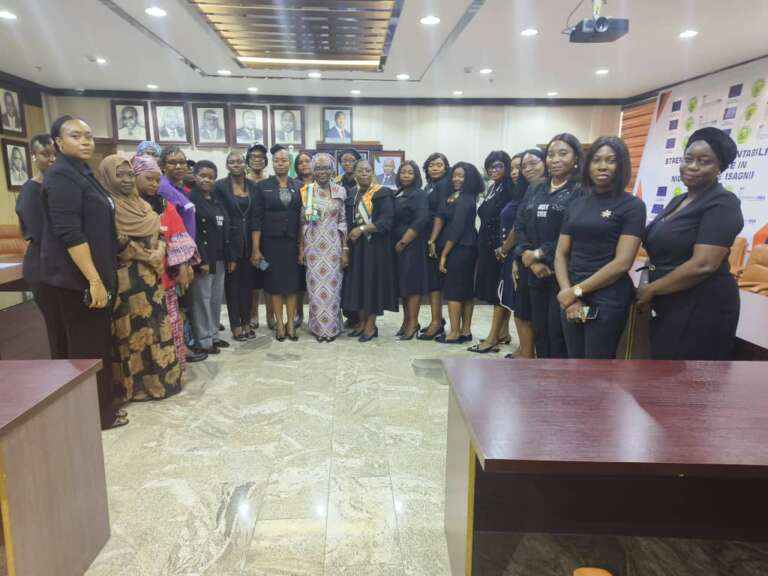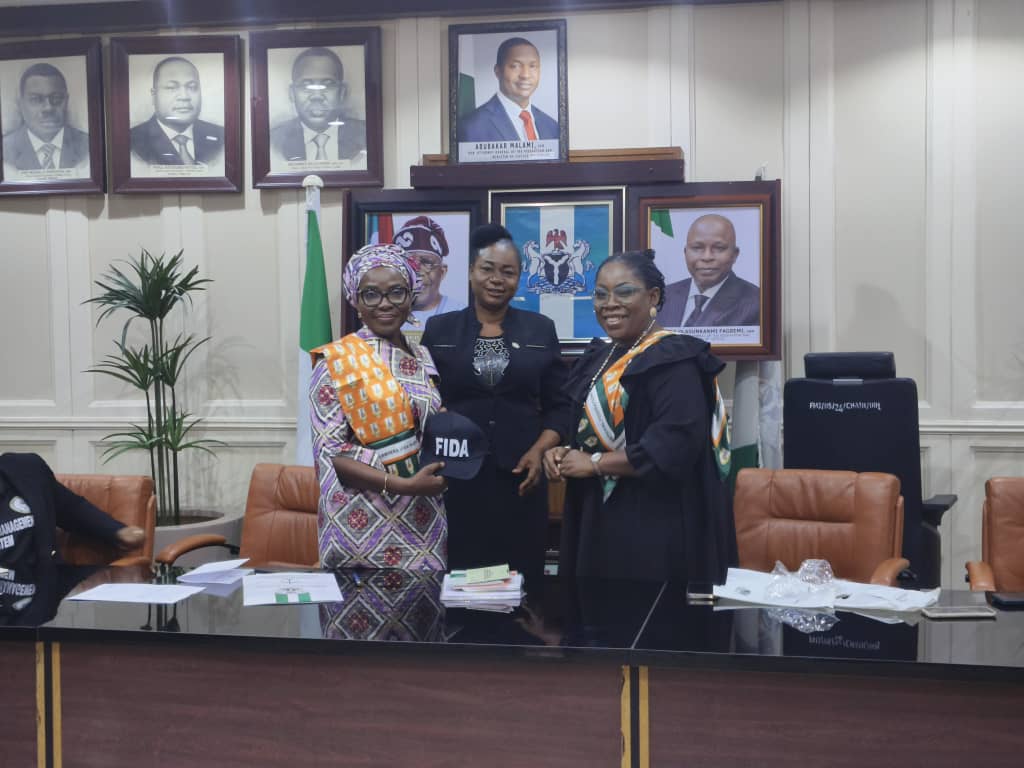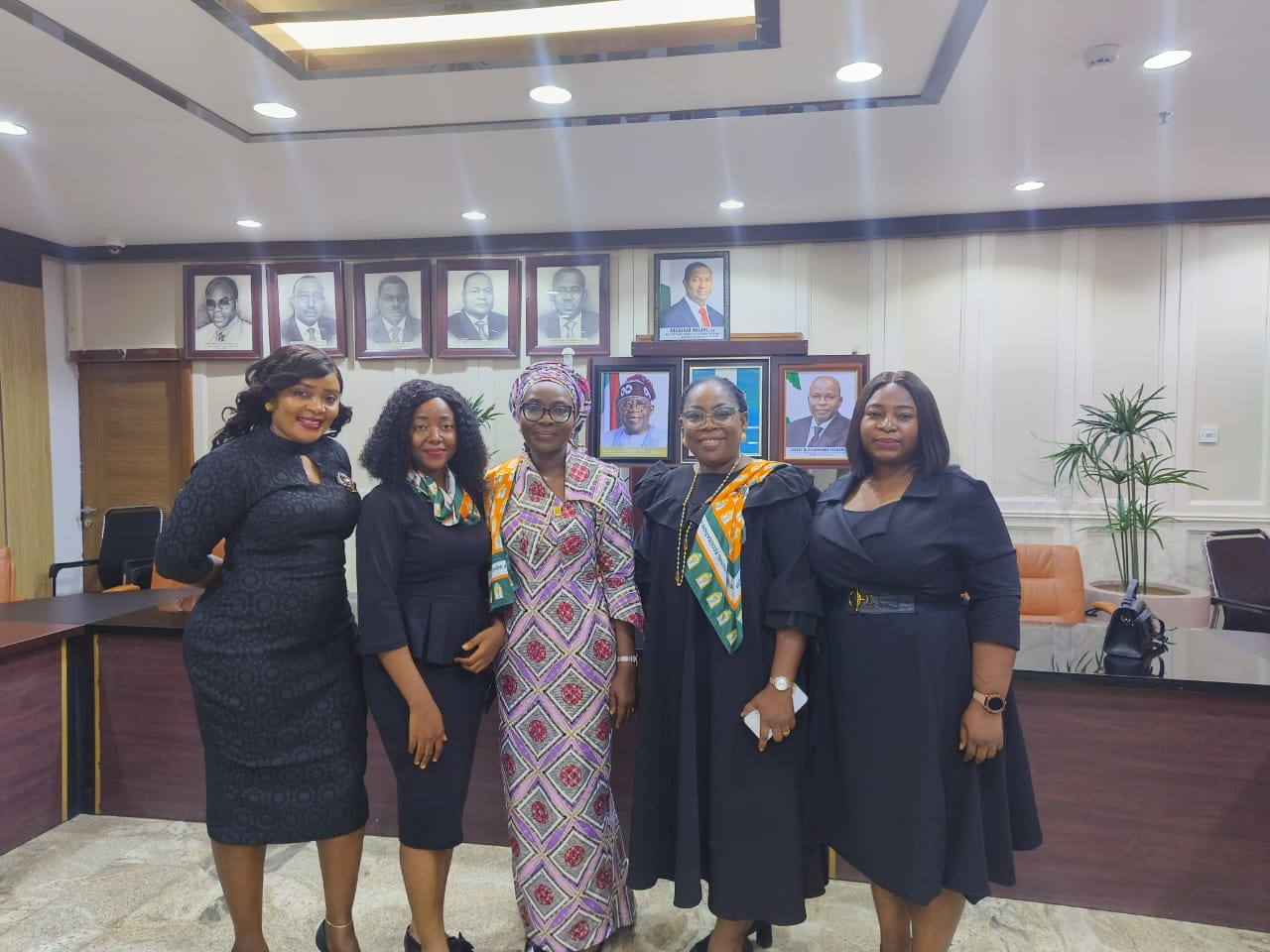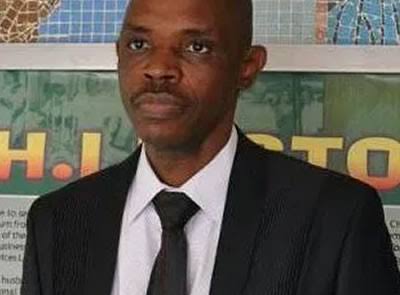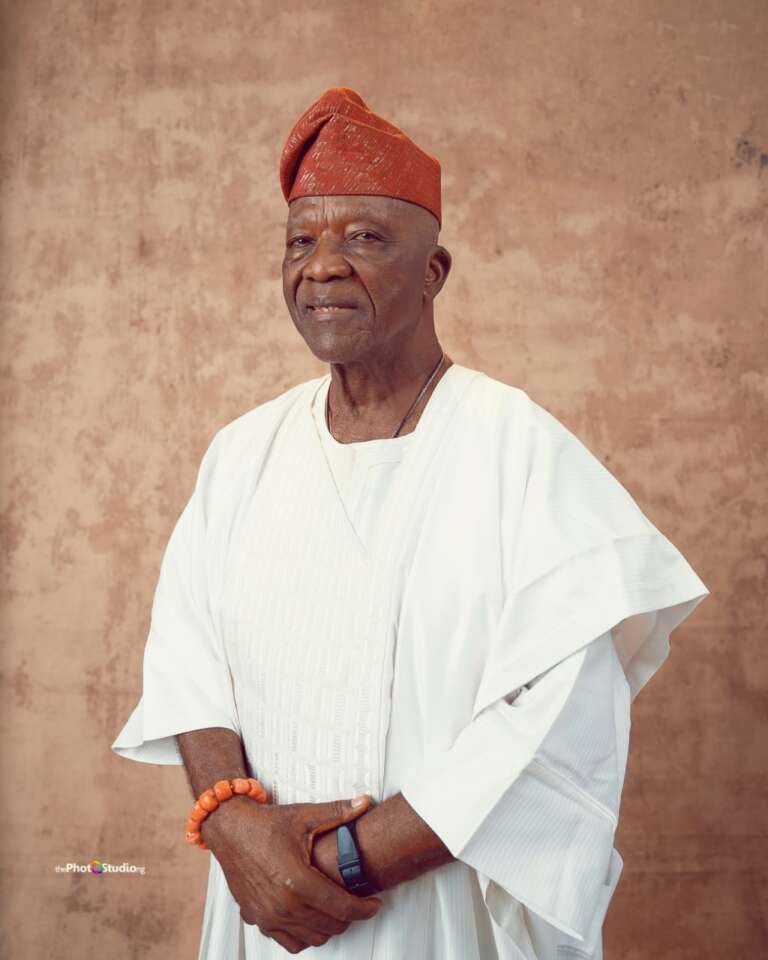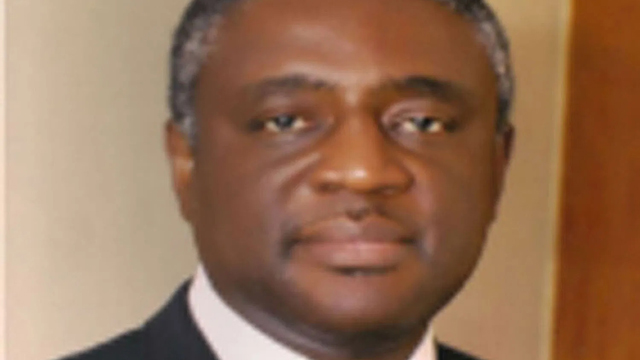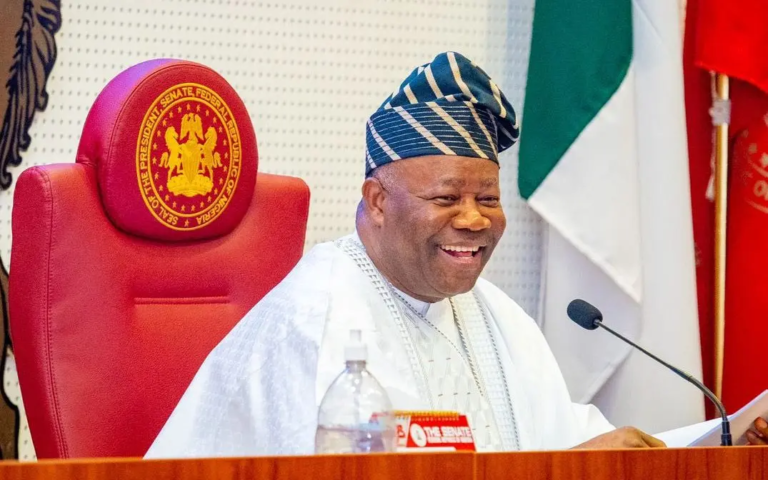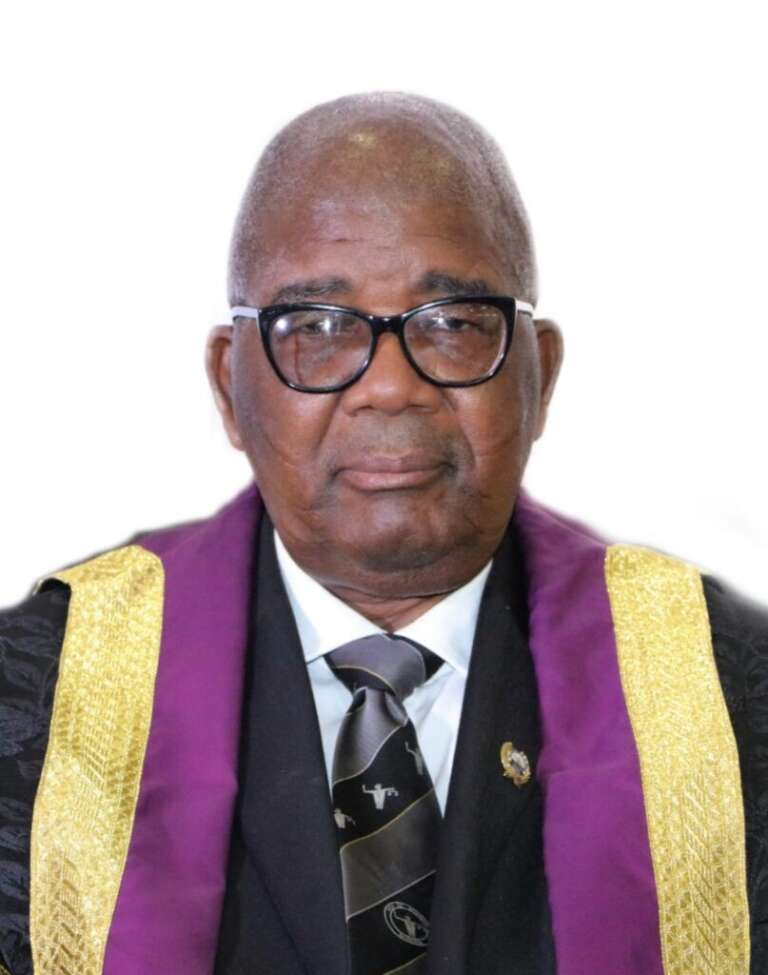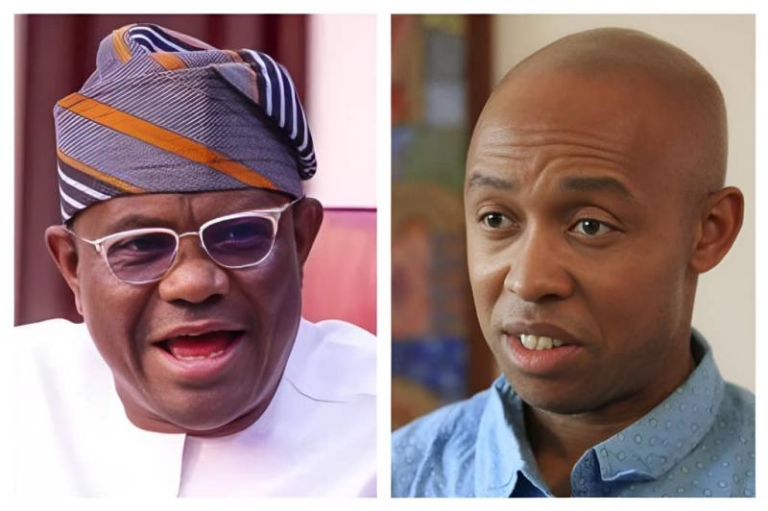On Friday 28 March, 2025, Asiwaju A.S Awomolo, SAN concluded his tenure as Chairman Body of Benchers (BoB) and assed the baton to to the former Chief Justice of Nigeria Mr. Justice Olukayode Ariwoola, (Rtd.)
Here are excerpts from his valedictory speech.
MY SERVICE, HIS GLORY
VALEDICTORY ADDRESS OF ASIWAJU ADEGBOYEGA SOLOMON AWOMOLO, SANFNIALS, FCArb, FNJI, FICMC, CHAIRMAN, BODY OF BENCHERS 2024/2025
I. THE BODY OF BENCHERS MUSEUM AND ARCHIVES
Having regard to the place of these giants in our history, I felt that we owed them a collective duty to preserve their contributions for generations yet unborn. It is in order to properly chronicle the eminent roles these illustrious pioneers played in the legal profession of Nigeria that motivated me to conceive the idea of the Body of Benchers Museum and Archives. For a Body that has existed for more than half a century, we considered that the time is ripe enough to begin to curate our own institutional history for the next generation. We belong to the 5th decade of the Body.
Time is ripe to write the history of the Body of Benchers hence work has begun on this project. I assure you that, very soon we will publish the History of the Body, it is a work in progress.
I commend Mrs. H. A. Turaki and members of her Committee for the brilliant work they did and still doing in setting up the Body of Benchers Museum and Archives, with the active support of the National Commission for Museums and Monuments. Today, we are proud that visitors to this premises have a place where they could glean our history, and interact with images and items that meant so much to the Body. The Museum is however a work in progress. I have no doubt that succeeding administrations will continue to populate and upgrade it to ensure that it meets international standard.
II. INTRODUCTION OF SOLEMN AFFIRMATION FOR NEW WIGS
The Legal Practitioners Act makes this Body the sole regulator of the Legal Profession and this cannot be shared with anybody. Thus our primary statutory role is to serve as the guardian of the legal profession in Nigeria. This is a duty that is most sacred. Any lapse on the Body’s part in this regard could lead to admission of applicants who are neither it nor proper into the legal profession. This would be bad not only for the profession but for the society at large. It is my view that one of the worst aflictions that could plague a society is to have unqualiied and unworthy people practising as legal practitioners.
Many years ago, the revered jurist, Justice Adetokunbo Ademola, GCON underscored the solemnity of enrolment when His Lordship observed that:
“By enrolling them we present them to the public as men the public can with confidence employ to carry out the duties and responsibilities appertaining to their all important ofice. We therefore owe it to the public to see that members of the public are not exposed to risks in their dealings with these men.”
In admitting new candidates to the legal profession it is therefore obligatory to hold them to oath or afirmation of a kind, if only to hold them to something sacred.
This was one of the reasons why we decided to introduce Solemn Afirmation by Applicants to the Bar. By this afirmation, the applicants swear to uphold the Constitution of the Federal Republic of Nigeria, 1999 and obey the Rules of Professional Conduct for Legal Profession 2023. This is an important rite of passage that serves to induct the new entrants into the profession.
On 27 November 2024, the Solemn Afirmation was successfully subscribed to by the 805 students of the Nigerian Law School, with a copy of the Rules of Professional Conduct in the Legal Profession 2023, in their hands at their Call to Bar Ceremony, thereby signaling a new dawn for the legal profession in Nigeria. This innovation was well received by the Benchers and it is hoped that it will continue in future Call to Bar ceremonies.
I thank His Lordship Honourable Justice Olukayode Ariwoola, the Vice Chairman of the Body and his team in the Screening Committee who creditably ensured that only the it and proper applicants were called to the Bar.
III. DIGITALIZATION OF THE PROCEEDINGS OF THE LEGAL PRACTITIONERS DISCIPLINARY COMMITTEE
The statutory responsibility of the Body of Benchers is not limited to admitting applicants to the Bar. That is not our only responsibility. I have noted above that the Body as the Guardian and Regulator of the Legal Profession must continue to nurture the profession, whatever is the rank. This is because it has a duty to ensure that the applicants to the Bar are it and proper not only at the time of their call. They must continue to remain it and proper throughout their years of practice as legal practitioners. The Committee which is saddled with this task of ensuring discipline and decorum within the Legal Profession on behalf of the Body of Benchers is the Legal Practitioners Disciplinary Committee (LPDC) established by section 10 of the Legal Practitioners Act, 2004.
In order to ensure that the LPDC continues to discharge its statutory responsibility as the “judicial arm” of the Body of Benchers, we commenced the digitalization of its proceedings with high tech softwares. It was commissioned on 25th March 2025. This introduction of modern technological software application of international certification has eased the work of the Committee. This introduction of high-tech development will facilitate and enhance the work of the Committee and also ensure that the proceedings become more interactive, credible, accurate, reliable, and less burdensome.
In the year 2024/2025, the Committee continued its duty of sifting the wheat from the chaff by ensuring just and fair determination of allegations of professional infractions or misconduct brought against legal practitioners. I thank His Lordship Hon. Justice Ishaq U. Bello, OFR and his Committee members for their sense of justice and industry. The Committee submitted full reports of its judicial activities for the years 2022, 2023 and 2024. The Body at its meeting of 27/02/2025 received and approved those reports.
IV. PUBLICATION OF THE LAW REPORTS OF THE DIRECTIONS OF THE LEGAL PRACTITIONERS DISCIPLINATY COMMITTEE
Distinguished and respected Benchers, you will recall that in my inaugural address on 21 March 2024, I observed that:
“…Another major problem before the legal profession today is the gradual erosion of discipline and non-observance of the professional ethics contained in the code of conduct of legal practitioners. The practice of law today has been thoroughly aflicted with the virus of ineptitude and indiscipline. In the last 4 years, this Body has admitted annually an average of I’ve thousand lawyers. Most of these lawyers went into the practice of the law without any opportunity of tutelage. There is need for a reform that will bring back the enviable status of the legal profession…”
It is my belief that one of the ways of engendering discipline in the profession is to publicise and disseminate widely the decisions of the Legal Practitioners Disciplinary Committees Directions. I am glad to report to you that we have succeeded in curating and publishing the Directions of the LPDC for the past four years [2021, 2022, 2023, and 2024].
I thank the Editorial Committee of the Body of Benchers under the Chairmanship of the cerebral Chief, Dr. Charles Uwensuyi-Edosomwan, SAN and members of his Committee for their industry and idelity to this assignment. In line with the provisions of the National Library Act, we have donated, on your behalf, and deposited as required by law, copies of the Law Reports to the National Library. The Body obtained as required by law International Standard serial Number (ISSN) 2354-3671 for the law Reports.
The Law Reports were publicly presented yesterday at an impressive ceremony. We thank Prof Dakas C. Dakas, SAN who honoured our invitation as the Book Reviewer. The Law Reports are now available at the Secretariat for purchase by legal practitioners and members of the public. I enjoin all of us to purchase the Law Reports for our chambers and to encourage our younger colleagues to read them.
V. PUBLICATION OF THE BODY OF BENCHERS DIARY FOR 2025
The Law Report was not the only publication we succeeded in producing in the course of the year. It must also be placed on record that the Body of Benchers was able to produce its own Diary, – for the first time, for the year 2025. The Diary is not just a calendar pad for the scheduling our programmes for the year. It is a compendium of our history, achievements, and important milestones over the year. If I am permitted to say, it is my humble view that the Diary is a collector’s item that will be referred to in later years.
VI. ESTABLISHMENT OF THE REGISTRY OF LAWYERS ENROLLED IN NIGERIA
It is an established fact that only the Supreme Court keeps the record of all lawyers enrolled in Nigeria as solicitors and advocates of the apex Court. I have always been conscious of the fact that as the statutory body established for admission of suitable, it and proper persons as legal practitioners into the profession, it should be the duty of the Body of Benchers to have a comprehensive database of all lawyers called to the Bar in the country. It has been for some time now, a regular feature of our national and public discourse, issues of whether someone was called to the Bar or not. I do not believe that the issue of being called to the Bar should be subjected to contentious public debate. It is either, on records, you were called or you were not. There is no middle of the road option.
It was for this reason that with the Body’s approval that we embarked on the project to establish a comprehensive Registry of all lawyers enrolled in Nigeria from the first legal practitioner, Nash Hamilton Williams from Sierra Leone who was enrolled 139 years ago on Saturday, 30 February 1886 to Zimughan Complay Enugu who was the last person called to the Bar on 27 November, 2024.
To the glory of God and the permission of the Honourable the Chief Justice of Nigeria and the custodian of the records, the Chief Registrar of the Supreme Court, the Body of Benchers is now a custodian of the records of all enrolled lawyers in Nigeria.
This is a digital project that is accessible by anyone who wishes to find out if and when someone was called to the Nigerian Bar. I have no doubt in my mind that with the crystallization of the project, the issue of fake lawyers parading the corridors of our courtrooms will be a thing of the past. It is a database open to members of the public and all security agencies conducting investigation to issues related thereto.
Let me take this opportunity to thank again the immediate past Chief Registrar of the Supreme Court for her cooperation and support for this project.
VII. LEGAL PRACTITIONERS BILL 2025
It is also in furtherance of the need to ensure that the legal profession in Nigeria remains competitive and up to date in this world of globalization that we prioritized the drafting of the Legal Practitioners Bill 2025. We are all aware that the Legal Practitioners Act was first enacted in 1962. It was thereafter subjected to series of amendments which culminated in the passage of the comprehensive Legal Practitioners Act in
1975 as Decree No. 15 of that year. Since its passage, it has been variously amended by Decree No. 29 of 1976, Decree Nos 40 and 67 of 1977, Nos. 9 and 75 of 1979, and No. 46 of 1988, amongst others.
At the time the Legal Practitioners Act, 2004, Cap L11 was enacted in its present form, more than forty years ago, the legal profession as well as technology were in the state of relative infancy. From whichever prism it is looked at, the Act has become due for a comprehensive overhaul. This is necessary to ensure that the legislation becomes more responsive to the challenges of contemporary legal practice.
In the past 6 years efforts were made by the Body and the Nigerian Bar Association, with a view to agreeing on acceptable provision to be incorporated into the new Legal Practitioners Act. Several committees were set up to review the Legal Practitioners Act 2004. Indeed the most contentious provision during debates and discussions related to who regulates the legal profession, the Body of Benchers or the Nigerian Bar Association. This Body insisted on the current state of the law, that it is the Body of Benchers which should be the regulatory authority for the practice of law in Nigeria. The NBA on the other hand, stood on the creation of an independent body of persons, including non-lawyers to regulate the practice of law. In the end the status quo is retained in the draft Bill.
We must all give credit and applause to the Honourable Attorney General of the Federation and the Minister Justice, for inalizing and endorsing the Bill now awaiting the Federal Executive Council approval as an Executive Bill for passage to law by the National Assembly. It is hoped the Bill, which I have signed off, will become an Act of the Nation Assembly soon.
Permit me to commend the zeal, commitment and upright leadership of the Honourable Attorney General of the Federation for this great achievement that will change many aspects of the legal practice for good. I also commend the leadership of the Nigerian Bar Association on this exercise.
VIII. CONSTRUCTION OF THE BODY OF BENCHERS ANNEX
On 29 September 2022, the President of the Federal Republic of Nigeria, President Muhammadu Buhari, GCFR, commissioned this huge complex which took over 10 years to build. We commend the achievement of Chief Wole Olanipekun, SAN CFR and Hon. Justice Mary Ukaego Peter-Odili, CFR during whose tenure the gigantic project was commissioned. Leadership is a continuum. We are grateful to all former Chairmen and members of the Body who served in various Committees for their contributions to what the Body of Benchers has become today.
On 6 December 2024, we all witnessed the foundation laying ceremony of the Body of Benchers Annex Building by His Excellency, Chief Ezenwo Nyesom Wike, CON, Life Bencher, the Honourable Minister of the Federal Capital Territory. This is a huge project intervention costing billions of Naira that will complement the existing physical infrastructure of this complex when completed. Construction work is going on very well at the site. I am conident that the incoming leadership under His Lordship Honourable Justice Olukayode Ariwoola, GCON will ensure that the project becomes a reality.
IX. CONSTRUCTION OF THE BODY OF BENCHERS SIGNAGE
As one drives into this our expansive complex of the Body, one structure you cannot but notice is the blazing Signage that proudly proclaims the name of the Body, THE BODY OF BENCHERS, NIGERIA in our traditional colours of Royal Purple and Regal Gold. The Signage, modest as it were, symbolizes our identity and encapsulates our value as the guardian of the Legal Profession.
Since its construction, the Signage has gone viral in the social media as almost all visitors to the Body of Benchers have taken pictures using the signage as a beautiful backdrop. During the last Call to Bar ceremony, I witnessed several of our young lawyers and their families taking turns to take pictures with the signage. I thank Chief Raiu A. Lawal-Rabana, SAN, Life Bencher and his infrastructural Development Committee for the design, and the execution of the project in record time. I thank Chief Albert Akpomudje SAN, Life Bencher, the Chairman, of Finance and Budget Committee and members of his Committee for their dedication and commitment to the project.
X. HAIRAT ADERINSOLA BALOGUN AUDITORIUM [HABA]
One of the most prominent Halls in this massive complex is the Hairat Aderinsola Balogun auditorium which is named after the irst female Chairperson of the Body. In order to ensure optimum use of the hall, I made it a point of duty that the 1st meeting of the Body, which I chaired, was held in that Hall in April 2024. The gesture might appear as tokenism in some quarters, but I believe it represented our symbolic afirmation of the high esteem of the meeting of the Body. The meeting of the Body in plenary is the highest decision gathering of Benchers. All the meetings of the Body since then have been held in the hall.
XI. ESTABLISHMENT OF WELFARE VISITATION TO OLD BENCHERS
It was Khalil Gibran, the philosopher poet who once observed that:
“But if in your thought you must measure time into seasons, let each season encircle all the other
seasons, And let today embrace the past with remembrance and the future with longing.”
Today, we are proud to be the inheritors of the legacies of our pioneer Benchers. These are outstanding men and women who gave their all to bequeath to us the Body of Benchers we are proud to identify with it. Without doubt, we would not be where we are today without their selless sacriices. Whilst we are praying for the repose of the illustrious souls of those who have slept in the Lord, it is important that we do not forget those who are still alive with us.
As rightly observed by Khalil Gibran, we must learn to let our today embrace the past with remembrance. It was for this reason that we commenced the project of Welfare Visitation to our Old Benchers. In the course of the year, we paid visits to our Pioneer Benchers in Port Harcourt, Kano, Kebbi, Yola, Kaduna, Lagos, Enugu, Ilorin, and Abuja. One could only imagine the joys that the visits brought to these elders who were extremely delighted to receive the Body’s delegations. This is our modest way of thanking them for their services and telling them that their labours of love were not in vain.
XII. TOKEN AND WELFARE FOR SPOUSES OF DEPARTED BENCHERS
The scripture in Ecclesiastes 3: 1-2 tells us in very clear words that:
“For everything there is a season, and a time for every purpose under heaven: a time to be born, and a time to die; a time to plant, and a time to pluck up that which is planted”
In the course of the year many of the heroes of the Body have slept and left behind their loved ones.
Remembering their loved ones has been taken up as part of the responsibilities of the Body. In the course of the year, token of affection in terms of welfare gifts were extended to the families of Benchers who passed. May their souls continue to rest in perfect peace. It is important to note that the little token given to the beneficiaries with the approval of this Body were well appreciated.
XIII. BRIDGE TO THE FUTURE
We are honored to report to the Body that we did not only establish a link with the past by visiting our old Benchers, we also constructed a bridge to the future. The future in this case is no other than the young law students in the Nigerian Law School Campuses who are aspiring to be called to the Bar. It is a truism that “life goes not backward and nor tarries with yesterday.”
In the course of the year, your Chairman was in Abuja, Port Harcourt and Yola Campuses of the Nigerian Law School to dine and wine with the students of the institutions. The importance of the customary dinner for legal practitioners goes, of course, beyond merely wining and dining. This is a treasured and exclusive opportunity for lawyers-in-training to interact and relate with their leaders in the profession. Many other Benchers also visited the other campuses of the Law School, and they brought back reports of good conduct on the part of the students. We are indeed proud of the wonderful work the management of the Law School is doing in grooming these young ones for the legal profession. It is recommended that this practice of the Chairman visiting Campuses of the Law School should be continued.
XIV. INTERACTIVE CONSULTATIVE MEETING WITH THE CHIEF JUSTICE OF NIGERIA
On behalf of all of us, permit me to express our collective gratitude to the Chief Justice of Nigeria, Hon. Justice Kudirat Motonmori Kekere-Ekun, GCON. Whilst it is not in doubt that the Chief Justice is a foremost statutory Life Bencher, we believe that there is a need for a platform for the Benchers to relate with the CJN as the head of the Nigerian Judiciary. This Body being the assemblage of men and women of the highest distinction in the legal profession occupy a very significant leadership position in the administration of justice. The voice of the Body as a major stakeholder must be heard loud and clear by the Honourable Chief Justice. It is not to be taken for granted in the administration of Justice in Nigeria.
I am glad to inform you that the 1st Consultative and interactive Meeting with the Chief Justice of Nigeria and the Body of Benchers had taken place. I am glad to inform us that the forum was productive, fruitful, and rewarding. Issues of mutual interest were discussed and irm understanding was reached on the way forward.
It is my hope that the Consultation Meeting has come to stay in the collective interest of all the stakeholders.
XV. INSTITUTION OF THE BODY OF BENCHERS ANNUAL LECTURE
As noted above, the Body of Benchers is going to be 54 years old in June of this year. The Body of Benchers Annual Lecture [BOBAL] was conceived to be an annual platform for intellectual cum practical introspective relections of the dynamics of the Body of Benchers within the legal profession in Nigeria. It is a programme designed to showcase to the national and international audience the workings of the Body of Benchers. Body of Benchers exist in all the commonwealth countries and other jurisdictions. There is need for stretching hands of fellowship to other countries with a view to beneiting from global networking and exchange of ideas.
The maiden edition of the BOBAL took place yesterday, and I am happy to note that many Benchers attended the landmark event. I thank His Excellency, Babatunde Raji Fashola, SAN CON. who delivered the
keynote address at the Lecture. We appreciate the discussants, Hon. Justice Helen Moronkeji Ogunwumiju JSC, Life Bencher, Professor Damilola Olawuyi, SAN., Professor Isa Hayatu Chiroma, SAN, Director General of the Nigerian Law School, Life Bencher and Hon. Justice Ishaq U. Bello, Life Bencher.
XVI. ADMINISTRATIVE RESTRUCTURING OF THE COMMITTEES OF THE BODY OF BENCHERS
When we came into ofice, one of the policy decisions we took was to create a sense of an all-inclusive ownership by all Benchers. As an egalitarian institution, it is our belief that all Benchers have a stake in the Body. We therefore restructured the administration of the Body by increasing the Committees from 14 to 17.
That was not all. We also renamed the Committees to ensure that their names and terms of references relect contemporary operational schedule of self-accounting public institutions. The terms of reference of the Committees were tailored to support and oversight the technical responsibilities of the management. The relationship of the Committees and administration was harmonious to achieve greater productivity, mutual respect and eficiency.
In addition, we institutionalized the Body with the ofices of the Chairmen and Vice Chairmen of all the 17 Committees thereby creating a unique Cabinet for the purpose of deepening inclusivity in the administration of the Body of Benchers.
I must once again, express my deepest appreciation to all the Chairmen, Vice Chairmen, and members of all the Committees. It has been a wonderful experience working with you all, and learning from you in the past one year. I am truly honoured.
Leadership is about accepting responsibility. In this regard, I accept responsibility for any error of judgment that might have been perceived in the structuring and restructuring of the Committees. The works of the Body have been made easier and better by contribution of ideas and experiences.
XVII. ORIENTATION ON RULES, REGULATION, AND ETHICS AND ETHICS/INDUCTION OF NEW LIFE BENCHERS AND BENCHERS
One of the areas of concern to the members of the Body of Benchers, in the last few years was the absence of opportunity for new members of the Body whether from the Bar or the Bench to be fully acquainted with and briefed or given orientation on the rules, ethics, regulations and culture of the Body. We proposed an orientation program and a formal induction ceremony for new members and Life Benchers. You graciously approved it. This Body approved the proposal because it has become inevitable.
On Thursday, 27 February 2025, we conducted orientation programme and inducted new sets of Life Benchers and Benchers. These are legal practitioners from the Bench and Bar who have distinguished themselves as practitioners and jurists of the highest distinction. These Benchers afirmed before God and man to uphold the integrity, nobility and honour of the Body, give good leadership to the junior ones and obey the Rules and regulation of the Body.
In commemoration of their new status, the Body of Benchers issued them Certificates evidencing their membership of this august Body. I recall that when many of us were admitted, no such documentation was issued to us, we merely walked into the meeting of the Body and introduced our names as new members.
This innovative development thus marked a new milestone in our quest to advance the institution of the Body of Benchers. Every new Bencher will now get a Certiicate of Admission upon being granted the privilege of becoming a member. This will obviate the needless and unnecessary dispute about the dates of seniority of membership.
This initiatives should be sustained and incorporated in the Body’s Rules and Regulations as part of the Body’s calendar and obligation.
Closely related to or connected with membership of the Body are the unsettling disputations as to seniority or skips in the dates of membership either as Bencher and Life Benchers. Many Benchers have disputed their dates, even though the secretariat keeps all records. In other to remove all disputations a data base of all Benchers has been created where the essential details or dates of all Benchers will be kept. At a click on the button every detail of members will be seen with picture of each member.
The central Registry of the Body has been re-organised to ensure that every Bencher is given whatever he/she is entitled to. Benchers are requested to avail themselves of these electronic records by cross checking the correctness of dates stored in the database.
XVIII. FINANCING OF THE ACTIVITIES OF THE BODY OF BENCHERS
It is correct to say that the Body enjoys appropriation and release of funds from the National Judicial Council (NJC) as an independent body. However, the funds released to the Body were never enough. This Body statutorily has the power to take donations and use such donations for the works of the Body, so, soliciting for and getting donations is lawful.
If we have been able to achieve a few things in the course of our service year, it is because of the commitment and generously of the good people who served the Body with their time and resources. We could not have achieved anything without the goodwill of Benchers and Non Benchers who generously donated funds. In the course of the year, we received in donations a total of N68,846,619.00 [Sixty-eight Million, eight hundred and forty-six thousand, six hundred and nineteen Naira]. A detailed statement of account has been prepared by the Secretariat and it is available as part of the books of records of the Body of Benchers. We are grateful to all the donors.
XIX. STAFF OF THE BODY OF BENCHERS
Professor Obaro Ikime, the foremost historian, stated unequivocally that history “is constantly passing by ordinary men and women without whose lives and work, there would be no history at all.”
It will therefore be uncharitable or unfair of me if I conclude this address without acknowledging the massive support I received from the Staff of the Body of Benchers. They are the ‘historical ordinary men and women’ who made to happen land mark achievements. These wonderful men and women are the hidden engines that drove the achievement recorded in the last one year of our activities. Eficient like clockwork, and constant like the Northern Star, they work behind the scene seamlessly to ensure that the Body of Benchers does not fail or falter.
I have always believed that of all resources for development, human resource is the most important. Human resources experts have always emphasised that in all establishment, human resources should be given due priority.
The Body of Benchers when it was established was located in the Federal Ministry of Justice, from Marina Lagos to Federal secretariat Abuja. With the separation from the Ministry of Justice to a self-accounting Body, the number of staff increased with increasing responsibilities of the Body. I am pleased to inform the
Body that the Human Resources Committee under the Chairmanship of Hon Justice Umaru Eri CFR, Life Bencher has restructured, the organogram, the career path progression and opportunities for achieving fulilment are now achievable for career advancement. Promotion to higher ofices is now available and all the staffs are happy. The Body now operates Directorates as against unit heads. I want to thank all the
members of the Human Resources Management Committee of the Body for their commitment and sacrifices.
Permit me to say that I am really excited and happy having regards to structural remodelling made to the personnel matter of the Body. To whom much is given, so much more is expected from them.
In recognition of their selless service, I instituted the Chairman’s Annual Award for the Best Staff of the Body of Benchers. This award is backed with cash gift of N500,000. The Human Resources Management Committee endorsed the award. It is our hope that the Award would be sustained as it will go a long way in boosting the morale of the staffs and in letting them know that their labours are recognised and will be rewarded in due course.
XX. “A STORM IN A TEA CUP” AIMED TO DISTRACT
You will also remember that when we started in April 2024, there arose “a storm in a tea cup”. There was disputation as to the validity, lawfulness and rightfulness of the appointment of the Chairman of the Appointment Committee. The Hon. Justice Mary U. Peter –Odili, JSC Rtd, who was the Chairman of the Body from 1/4/2023 to 30/3/2024 totally disowned the alleged appointment of the Chairman of the Appointment Committee. The matter, while it was being still discussed in Abuja was taken before the Federal High Court, Lagos, wherein the authority of the Chairman of the Body was challenged. It was unthinkable that a call to service which in all seriousness was an honour to serve could get that fierce in a nonproit position.
The Body of Benchers and its Chairman were promptly restrained from performing their statutory duties by an ex-parte order given by the Honourable Judge.
The then, Chief Justice of Nigeria Hon. Justice Olukayode Ariwoola GCON and few other Elders at a meeting at the Supreme Court resolved that the disputed appointment of the Chairman of the Appointment Committee be allowed to stay. What has never happened in the over 50 years of the Body was compromised. The case was withdrawn and later struck out.
This matter remains the darkest spot in the life of the Body and never again should this be allowed to happen. This Body, however, unanimously amended the Regulation of the Body and made institution of Court actions on an internal matter of the Body, without irst exhausting internal dispute resolutions, well laid out in the rule, will amount to misconduct. I thank Hon. Justice John Iyang Okoro, JSC, who is the Chairman of the Regulation Committee for a good job in the reform introduced in the new Regulation of the Body.
Events shape the fortune and ways of humanity and it is for humanity to learn from their experience. The Body learnt a lot from the adverse use of social media to disparage and bring into public opprobrium the honour, integrity and public image of the Body.
I thank everyone for your patience, understanding and maturity that have put behind us this unfortunate incident. We all have learnt unforgettable lessons.
I am indeed grateful for the moments I shared with all the members of the Body. Memory of your good deeds can never and will never be forgotten. I cherish the 12 months I served as the Chairman, Body of Benchers. It will be a chapter in my memoir. The scripture says “wisdom is a defence and money (with influence) is a defence but the excellency of knowledge is that wisdom giveth life to them that have it… wisdom strengthenth the wise more than the mighty men which are in the city.. the end of a thing is better than its beginning. (Ecclesiastics 7 & 8)
XXI. PERORATION
Distinguished Benchers, time and space will not permit me to catalogue all the interventions we embarked on in the last one year. With your support and assistance, we have come this far. We have served and with the Grace of God, we have succeeded. Although I am the only one who is standing on this podium to reel out this scorecard to you, you can be rest assured that this is not a personal achievement of Adegboyega Awomolo alone. It is our collective achievement.
All that I have spoken about in this address may be regarded as my own story, but it is certainly to the glory of God Almighty, who has made all these possible. It is God Almighty who deserves the glory for bringing us this far. Without Him, we are but nothing. The book of prophet Isaiah 42:8 says that: He is the Lord God and that He will not share His glory with any man. He alone deserves and takes the glory.
I must not end this address without expressing my gratitude to His Lordship Hon. Justice Olukayode Ariwoola, GCON. As the Vice Chairman during my tenure, His Lordship supported me without qualification. It has been a cherished privilege working with His Lordship. I have no doubt in my mind that as the incoming Chairman of the Body of Benchers, Justice Ariwoola will lead the Benchers with his characteristic, maturity, native intelligence, uncommon wisdom, unparalleled team spirit, and the innate ability to get things done. I hope everyone will give him all the support as he assumes the Chairmanship of the Body later today.
To my family, particularly my wife, Yeye Victoria Olufunmilayo Awomolo, SAN, Bencher, many thanks for being a bulwark of support, and many thanks for providing a conducive home whilst this assignment lasted. When the storm was tough, you stood solidly on the Rock in prayers, if not for God, the adversaries aimed at frustrating the tenure but God won on all fronts.
Permit me to end this address with applauses and thanks, to Daniel Manasseh Tela, Esq., – Secretary of this Body. He is the reinforcement appointed from God that sustained all the structure that we erected. The support and importance of the Secretary cannot be over emphasised. He worked day and night to ensure we complied with civil service rules, followed due process, complied with financial regulations and followed the pattern already, established for previous records of success of the Body.
Like Daniel in the scripture, he was at all times loyal and committed. When adversaries tried to create an opportunity to challenge his loyalty; His loyalty was tested and in the end came out a good man that deserves trust. His working with me knew no hours; he was full of strength, foresight, and commitment for excellence. We encouraged ourselves in the word of God. He was the driver that piloted the vehicle of the Body to this safe place. To say, Thank You, is not enough, but I know only God rewards, and He will reward him.
To God Almighty; the most merciful, and benevolent God, I give my thanksgiving. I will forever praise His
Holy name for my service. All glory goes to Him.
Asiwaju Adegboyega Solomon Awomolo, SAN
52nd Chairman of the Body of Benchers 27th March, 2025

